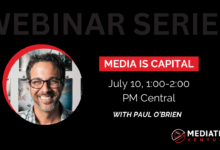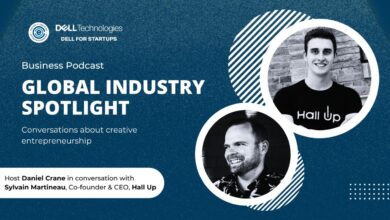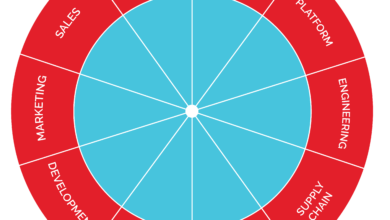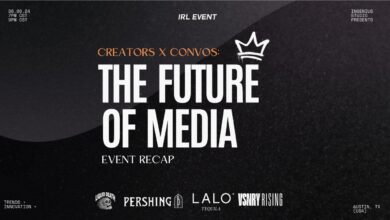
I’m increasingly seeing a problem in startup ecosystems and it’s that startup founders are failing to distinguish themselves in clarifying the difference between a problem, and the problem they’re solving.
Pitches continue to start with such bold and broad assertions as, “People struggle to find affordable housing,” “The gig economy isn’t capably sustaining freelance professionals.” “Climate change will end life on our planet if we don’t act now.”
Notice, those are all, indeed, problems. They seem like inspiring statements with which a founder might start a decent pitch; they certainly start with a more effective “why” than how most entrepreneurs pitch. Heck, you can picture the Ted Talk in your brain and probably get a little excited that you’re going to hear something inspiring from an entrepreneur.
And yet, such problem statements immediately raise a red flag – what on earth could you conceivably actually do to end that? To end that in particular?
To Start, Start Spying
A high school student, this week, because they want to be a startup founder, asked me what software development they should study in college. Alas, I don’t think he liked my answer… briefly:
I went on, “And you’re asking what to study in school… which has nothing to do with it. And asking in software development… which has nothing to do with it.“
My answer was dismissed with a “thank you, but I’m not sure passion is that important.”
Here’s the thing, we KNOW that you have to have passion to persevere, we know that experience matters, we have proven that failing marketing will result in your failure, and we know that the team matters… ah the irrational exuberance of youth…
I share all that to bring you here where I finally start exposing what I’m thinking about this time. Marketing is Spying.
Marketing is the work of knowing what to do, where, and how, in the market, to create customers. Marketing is the study of competition, opportunity, and the past and future of the market, to inform the business about the product/solution, business model, people necessary, and where to reach, influence, and convert people.
Marketing is NOT advertising or promotion; that’s something marketing does – and it only does so effectively if it has first actually done marketing to figure out if, where, why, and how.
Peter Drucker once noted brilliantly (paraphrasing) that if you have to actively SELL what you’re doing rather than just converting and serving customers, your marketing is failing you. You have failed to do marketing well enough to make selling superfluous.
As a founder, you’re the CIA of your little country and your foremost job is making sure that you are aware of threats, weaknesses, opportunities, and your strengths so that you can leverage or make up for those as you develop in the world.
That’s when it dawned on me that MediaTech Ventures explored how the James Bond books were a wonderful lesson about omnimedia and effective promotion of what you’re doing because of how they turned stores into film and even video games; that, your story must reach people in various ways published otherwise no one will know or care what you’re doing.
MI6, and the Bond books and films, inspire us to save the world, they excite us with possibilities in technology, and much like the Star Trek or Star Wars films, they are an important part of our cultural identity because in telling those stories, they inspire people to take risks.
While MI6 is doing the “market research” to figure out what to do, where, why, and how, we can better appreciate how the skills, experience, and personality of the founder matters — MI6 can’t send M or Moneypenny in to save the world, they send 007 because they know what he can do, they know his limitations, and they know what to expect of who he is.
You Are James Bond, but Your Startup has to be MI6
With his suave demeanor, sophisticated taste, physical prowess, and intelligence, knowing Bond for who is he, helps us understand how to work with him.
Known for his preference for luxury cars, fine dining, and high-end gadgets, Bond is a skilled fighter, marksman, and tactician, often using his talents to outmaneuver his adversaries. His approach to relationships is typically portrayed as detached, with Bond engaging in romances that are fleeting and marked by his “ladies’ man” persona.
Starting to see how a solid understanding of yourself as a founder enables others to join you? We know not just your strengths and weaknesses but we get a sense for your values, your needs, and motivations.
Bond’s personality is marked by a combination of charm and ruthlessness; he is willing to make hard decisions and take decisive action to complete his missions. Despite his often cold exterior, Bond shows loyalty and a sense of duty to his allies and has moments of introspection and vulnerability, especially in the novels and more recent films, which explore the character’s background and motivations more deeply.
Interestingly, since we know the classic definition of “entrepreneur” has a high correlation with risk tolerance, need for variety, and enduring the struggles most can’t endure, James Bond too has tendencies that could be considered a high-functioning sociopath (not to suggest entrepreneurs are sociopaths, but hey, let’s be honest). He is capable of forming attachments and displaying loyalty, but often suppresses his emotions to deal with the demands of his job. The death of his parents at a young age and his experiences in World War II and as a secret agent have shaped his personality, contributing to his emotional detachment and the seriousness with which he approaches his work.
And be clear about this, Bond doesn’t go it alone…
Q and the gadgets (technology) created are effectively useless without MI6 listening for threats and without James Bond executing solutions to the problems at hand.
Q-Branch, the division within the British Secret Service responsible for developing and supplying all the cutting-edge gadgets, weapons, vehicles, and technology that Bond and other agents use in the field, invents solutions.
The character of Q is best known for his briefings to Bond, often in a lab bustling with bizarre and exploding inventions, where he presents Bond with his mission-specific equipment.
And that’s why I shared the discussion held with a high school student. That all too many entrepreneurs set out with a tech background, a product focus, or a solution desire, and they try to get people to want their BMW Ejection Seats (or SaaS Accounting App). You’re Q, without MI6 or understanding what’s expected of James Bond – you have no idea what’s actually wrong in the world and so while you might start your pitch with a plea about Climate Change, you’re not telling us an underlying problem and failing to correlate that with what specifically you are doing to address not all of climate change, but that issue that remains unsolved.
Now that I think about it, Quantum of Solace wonderfully illuminates the point with which I started – the movie touches on our heart strings about climate change…
Quantum of Solace and What to Realize About Bond
“Quantum of Solace,” the 22nd installment the series, was directed by Marc Forster and written by Paul Haggis, Neal Purvis, and Robert Wade, the film stars Daniel Craig in his second performance as James Bond and came out in 2008 as a direct sequel to the 2006 film “Casino Royale” (bar trivia: making it the first James Bond film to be a direct sequel).
Notable for a darker tone and more serious approach to the character in Quantum, you can see just in that variation, how the personality, tone, and style of the story impact HOW people receive and enjoy their experience with you. I’m reminded of the Bond with whom I grew up, Roger Moore, who was distinctly more fun and quirky – resulting in audiences (your market and customers) having a different perception of the brand.
“Quantum of Solace” explored themes of environmentalism, resource exploitation, and the consequences of personal vendettas, reflecting contemporary global issues.
The Problem Solution Statement of Quantum of Solace
The movie begins with Bond (our founder) capturing Mr. White, a member of the previously unknown criminal organization Quantum (a perceived problem). Had they stopped there, the movie would be over. Luckily, they started marketing to validate the problem perceived. During an interrogation by M, the head of MI6 (that is, a team, not just the founder, Mr. Bond), White reveals the vast influence of Quantum, before escaping with the help of a double-agent within MI6.
Bond’s investigation leads him to Haiti, where he encounters Camille Montes, a woman seeking vengeance against General Medrano, who is planning to overthrow the Bolivian government. Medrano is in league with Dominic Greene, a member of Quantum posing as an environmentalist who plans to monopolize Bolivia’s water supply.
A ha! Not a founder saying we have to do something about the water crisis but rather now a clear problem we can address, monopolization of a supply in a specific place — that’s a tangible, addressable problem.
Greene’s plan involves a coup d’état that would install a puppet regime in Bolivia, allowing him to control the country’s water. Bond and Camille eventually uncover Greene’s scheme and set out to stop him. Their journey takes them to Austria and later to Bolivia, where they confront Greene and his allies.
n the climax of the film, Bond and Camille attack Greene’s hotel in the Bolivian desert, where they manage to thwart Greene’s plan and rescue the captured agents. Although Medrano is killed by Camille, avenging her family, Greene escapes but is later abandoned in the desert by Bond, with only a can of motor oil for company.
Now, get this… Quantum of Solace is the Bond film in which Q is notably less present and the technology less relevant. Solving the problem is a matter of putting the right people in place to get the job done; technology is merely a resource or tool that enables us to deliver the valued solution. In Quantum, Bond does use a Sony Ericsson C902 smartphone equipped with a tracking device and identification software, allowing him to track individuals and receive information on the move.
However, the opening scene, finds Bond in an Aston Martin DBS V12, likely full of machine guns, smoke screen, bulletproofing, and an ejector seat. Regardless, the technology itself is critical to the story and meaningful to our venture because it’s the tool he uses to defend himself from competition (the bad guys) and it’s how we learn he escapes with Mr. White, having discovered a possibility.
The car is our startups’ MVP and, dear founders, it’s critical to entirety of our experience with the solution unfolding:
With proof of the car’s impact, we can study deeper the problem perceived so that we finally uncover a genuine problem that our company, MI6, can act to solve with the right team, the right resources, and the right Go To Market strategy based on where they need to be and how.
Where Stories Meets Technology, We Learn
So listen, of course I have something specific I want to share with you. SXSW is coming up and so film and music are on my mind as much as the fact that everyone is curious what will be going on in Austin.
Entirely coincidental (trust me), our plans are in place for Funded House, where we host Venture Capital Investors and Fundable Startups in semi-private events. It just so happens that Funded House will be hosted at downtown Austin’s best place for startups, Q-Branch.

Q-Branch Austin, on 6th street, draws inspiration from the research and development arm that supported the legendary character James Bond, 007. Where better should we put our founders and investors than with the resources we need to meaningfully solve problems.
Just as Q provided indispensable support to James Bond, this, the real Q-Branch, is dedicated to being the leading advocate for global innovation, fostering its growth and driving prosperity for all. Precisely what Austin needs, an ideal partner to MediaTech Ventures, and clearly where you want to be during SXSW in March.
Here’s what I need you to do:









This thought-provoking piece draws an insightful parallel between the roles of startup founders and the iconic James Bond character. The author skillfully highlights the importance of market research, problem identification, and strategy development – akin to the intelligence-gathering and mission-planning done by MI6. The analysis of “Quantum of Solace” effectively illustrates how founders must uncover specific, addressable problems rather than broad assertions. Overall, it’s a compelling read that encourages founders to adopt a strategic, “spy-like” mindset for identifying viable opportunities and creating impactful solutions.